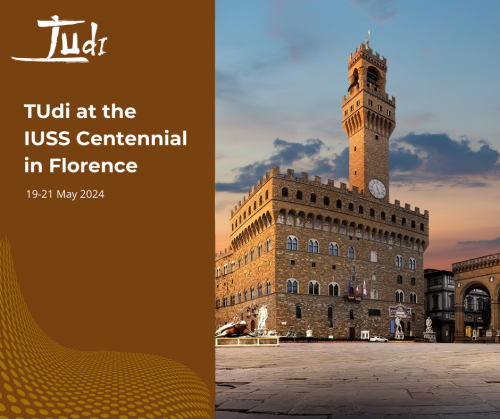TUdi at the IUSS Centennial in Florence
In 2024, the International Union of Soil Sciences (IUSS) celebrated its 100th anniversary. From 19 to 21 May, nearly 1,500 experts from 73 countries gathered in Florence, Italy, to attend the conference. It was the IUSS’s first world congress held in Italy since its founding in Rome in 1924.
The congress hosted 14 plenary sessions and 82 parallel sessions, during which papers were presented on 7 main topics:
-
Soil health and sustainable development goals,
-
Soil governance,
-
Soil in the circular economy,
-
The impact of soil sciences on basic knowledge,
-
Soil in the digital age,
-
Soil and humanity,
-
Equity, diversity, and inclusivity in soil sciences.
Representatives of the TUdi consortium from the Northwest A&F University (NWAFU), Northwest University (NWU) and Beijing Normal University (BNU) all attended the conference and presented relevant papers on the topics of “Impacts of simulated erosion and fertilisation use on soil quality and corn yield in northwestern black soil region”, “Calculation and Analysis of Soil Erodibility Factor (K) on a Global Scale” and “Assessment of Soil Erosion in the Pan-Third Pole Region”. From the European part of the consortium, the TUdi project coordinator José A. Gómez attended and presented a poster on “A hybrid, field guide for appraising water erosion risk by farmers and technicians in multiple woody crops and environments”, and Csilla Hudek from Lancaster University presented 2 papers: “Facilitating soil restoration: the role of soil biology indicators in monitoring and assessing soil health” and Integrated catalogue of optimised practices to improve soil health”.
In summary, the key messages from the conference contributions emphasised that addressing global challenges—such as food security, desertification, climate change, biodiversity loss, and the well-being of both people and nature—requires a solid understanding of soil science. Numerous presentations focused on selecting and applying soil health indicators for monitoring, reporting, and verifying environmental policies.
Additionally, there were examples of techniques to combat various forms of soil degradation, including erosion, salinisation, pollution (including urban soil issues), compaction, loss of organic matter and biodiversity, acidification, decreased fertility, and nutrient imbalances, all under different environmental conditions.
